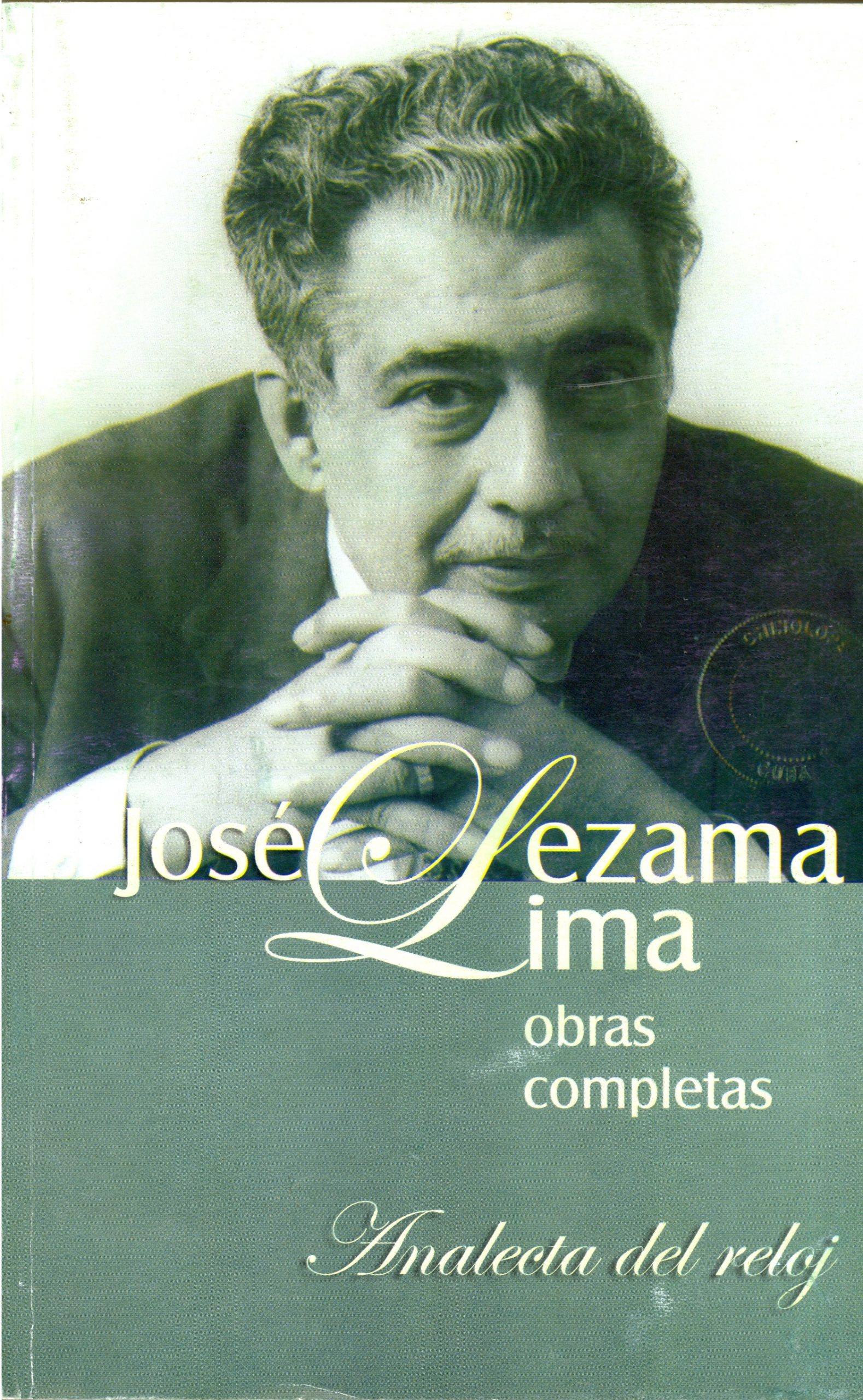4.1.2.2.12 “Analecta of the Clock”, a work published in 1953 by José Lezama Lima (1910 – 1976)

“Analecta del reloj” contains some texts that Lezama Lima had made known in Orígenes and in the previous publications under his aegis, among which is the aforementioned study on the work of Garcilaso de la Vega and also others dedicated to Góngora, Quevedo and Calderón de la Barca, with the titles of “El secreto de Garcilaso”, “Serpent of Don Luis de Góngora”, “Cien años más para Quevedo” and “Calderón y el mundo personaje”, respectively.
However, he did not focus solely on the poets who comprise the rich Hispanic tradition but also devoted himself to the study of exponents of the French poetic language, such as Mallarmé and Valéry, in the respective essay pieces “On Paul Valéry”, “The Poetic Act and Valéry” (who had published in the magazine Orígenes and even his text “The Young Parca” was published under this imprint), “Mallarmé’s Fulfillment (1842 – 1942)” and “Prose of Circumstance for Mallarmé”. This notebook also includes “Montaigne and His Best Readers”.
The text “Colloquium with Juan Ramón Jiménez” is the result of a dialogue held during the latter’s visit to Cuba in 1936. It reflects the views of both on topics related to poetry, where Lezama investigates the concept of “insularism” – what could be called the insular telluric – as well as the relationship between philosophy and poetry, romanticism and, in general, poetic forms and possible preeminences.
Juan Ramón Jiménez’s criterion regarding the transcription of the dialogues is interesting, in which the non-literal nature nevertheless contributed to forming a broader epistemological body:
“In the opinions that José Lezama Lima “forces me to write with his abundant pen,” there are ideas and words I recognize as my own and others I don’t. But what I don’t recognize as my own also has the quality of not dismissing it as foreign. Moreover, the dialogue is at times fused, not between one or the other, but between space and time.”
An interesting text included in the notebook is “Del aprovechamiento poético,” a short essay dating from 1938. This is one of Lezama’s most speculative texts, in which he delves into philosophical disquisitions that help to further reveal the ultimate substance of poetry, as well as its relationship to and differentiation from prose. Here he asks:
“Will we be content to dip our hands into the waters of poetry and show the first little fish, or will we awaken by separating rumors of mists and dominion into fleeting expressions?”
In this text, Lezama definitively opts for the second option—the most difficult and, at the same time, the most stimulating—and offers sharp brushstrokes that converge both towards a “poetic” theory of the poetic, and towards deciphering some keys to its history and relevant ecumenical figures and the context of the Island, touched by that indefinable thing that definitively links them to a solid tradition, incorporated into poetry’s struggle through time.








